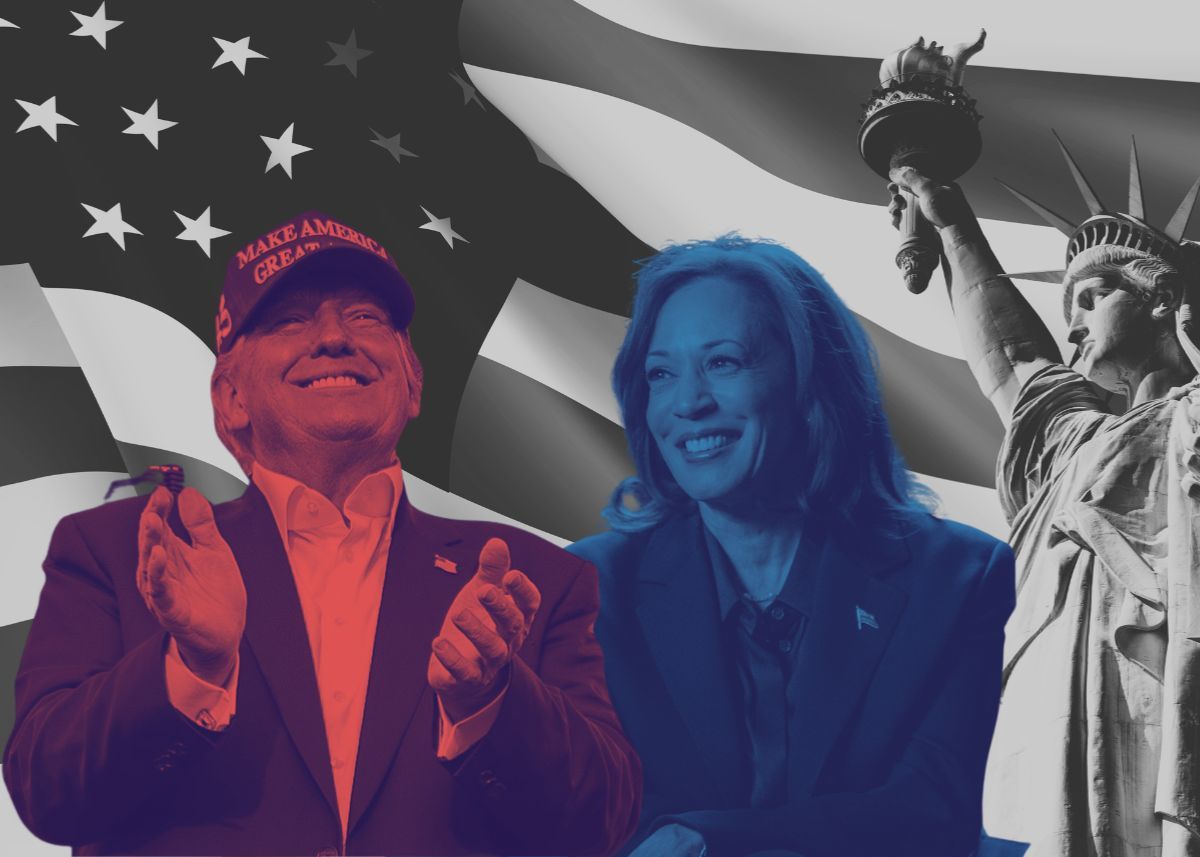As Americans head to the polls tomorrow, the world watches closely—not least South Africans. This year’s election pits Democrat Kamala Harris against Republican Donald Trump, with polls indicating a razor-thin race. Harris holds a slim lead in some polls, while others show a dead heat. With swing states too close to call, the result remains unpredictable, setting the stage for a potential political upheaval.
What’s at Stake?
For Harris, key issues include affordable housing, wage increases, and fighting climate change. According to the New York Times, Harris has a strong stance on abortion rights and aims to fortify international alliances. Her administration would likely maintain continuity in foreign policy and trade agreements like AGOA (African Growth and Opportunity Act), which benefits South Africa by allowing duty-free exports to the U.S.
For Trump, it’s about cutting taxes, boosting domestic oil production, and implementing stricter immigration policies. He’s promised sweeping tariffs on imports, which could disrupt global trade, potentially hurting South African exporters. Trump’s previous term was marked by isolationist policies, and his victory might revive that stance, pulling the U.S. back from international commitments.
The Possible Impact on South Africa
A Harris win would likely mean more predictable relations, with continued trade benefits under AGOA and a consistent approach to African relations. For South Africa, this translates to stability in exports to the U.S., particularly in agricultural and manufacturing sectors, and possible cooperation on climate initiatives.
A Trump victory, however, could bring volatility. His tariff policies could make it tougher for South African goods to compete in the U.S. market. Additionally, his past scepticism toward South Africa’s land reform policies and AGOA’s renewal casts a shadow on future economic relations.
South Africa’s Economic Concerns
With the U.S. as one of South Africa’s major trading partners, any change in tariffs or trade policies will directly impact the economy. A stronger U.S. dollar, spurred by Trump’s fiscal policies, might weaken the rand further, raising the cost of imports and increasing inflation domestically. Moreover, Trump’s promised immigration crackdowns could affect South Africans working in the U.S., limiting remittances sent back home.
Currency Volatility and Investor Anxiety
According to Reuters, currency markets are already reacting, with fluctuations expected around the election and the Federal Reserve’s upcoming meeting. A Trump victory might fuel dollar gains as investors flock to the “safe-haven” currency, potentially pushing the rand lower. A Harris win could stabilise markets, although some volatility is anticipated regardless.
Beyond the Economic Impact
This election isn’t just about numbers; it’s about global influence. Harris advocates for stronger international partnerships, potentially beneficial for South Africa in terms of trade, climate action, and diplomatic collaboration. Trump’s isolationist policies, on the other hand, could strain global ties, impacting not only trade but also joint efforts in areas like security and human rights.
The Final Countdown
As Americans cast their ballots, the outcome will ripple far beyond U.S. borders. For South Africa, a Harris win might mean more of the same, but with continued trade access and potential collaboration. A Trump return, however, could spell a turbulent future, with increased tariffs, currency fluctuations, and strained diplomatic relations.
HARRIS OR TRUMP? WHO IS YOUR MONEY ON AND HOW DO YOU THINK THE OUTCOME OF THE U.S. ELECTION WILL IMPACT SOUTH AFRICA’S ECONOMY AND TRADE RELATIONS?
Let us know by clicking on the comment tab below this article or by emailing info@thesouthafrican.com or sending a WhatsApp to 060 011 021 1. You can also follow @TheSAnews on X and The South African on Facebook for the latest news.
